PHUMZILE SOKANYILE
NDAMAZULU, EASTERN CAPE
Trauma stalks the families of Marikana’s slain. This is most apparent in the hunted look in the eyes of their widows. In March this year Nocingile Sokanyile appeared harried and dis-orientated — as if, since the death of her husband Phumzile on August 13 last year, she had been on the run from reality.
During a visit at the end of May Nocingile retained the appearance of someone who had not found peace of mind. She did not remember our earlier meeting.
The joyful screams of children riding cardboard boxes down a steep hill nearby were in direct contrast to the pall of distress and gloom that shrouded Nocingile and her aqua-marine two-room house as we spoke.
In an interview in June 2013, she admits to having been “in a bad way” after her husband’s death.
“All five of my children failed at school after their father died. My daughter Fezeka failed grade 12 last year. I wasn’t in a good enough state to look after them then,” she says. “Then, in January, I was admitted to East London hospital for a month because they found I had cervical cancer.”
Nocingile says her “body was weak” by that stage and she “was on drips and vomiting a lot, and suffering from diarrhoea”.
Her children are slowly getting better after the loss of their father, says Nocingile, and while Lonmin paid the fees for the local schools the three youngest attend, she hopes to send them to boarding school next year. This is a trend among most of the miners’ families, as it guarantees a better education than the local rural schools and means that children are clothed and fed adequately.
As we speak, Nocingile is assisting with a family ritual to ward off bad luck. Besides her husband’s death, the extended family also lost a relative working in Marikana who died in a car crash and another family member who was killed in a shack fire while working at Impala Platinum. The family elders had decided that an iskhuzo (exorcism) ceremony to appease the ancestors was required.
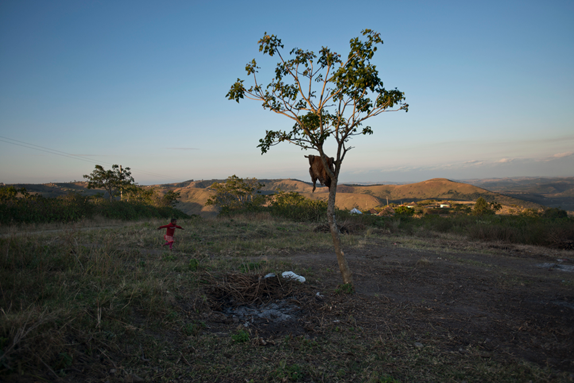
Nocingile, who has been busying herself in preparation for the three-day event, appears to be slowly emerging from the shell-shocked state she was in during our previous visits. Having visited the Marikana koppies for a cleansing ceremony hosted by the government in June 2013, Nocingile says she will now attend the Farlam Commission’s hearings.
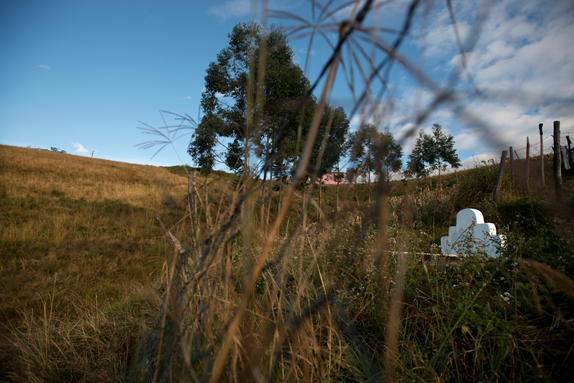
“At first I didn’t know what happened to my husband,” she says. “I’d only heard stories. But going to the mountain, seeing where my husband died and getting the photos [in a file the families’ lawyers at the Socio-Economic Rights Institute compiled on each victim] has helped me. Otherwise I would be sitting here at home not knowing anything about my husband’s death.”
“It has helped me tremendously now that I have a clear picture of how he died and what happened to him,” she adds. “At least now I know.”
Growing up in Ndamazulu village in the Eastern Cape, Phumzile and Nocingile were childhood sweethearts who had dated since 1984.
Phumzile proposed to her in 1997. “He said, ‘I want to make you my wife. I want you to come home and play the role of a wife and cook for my parents.’ He was a loving person and I was attracted to him, so I agreed,” remembers Nocingile. “He played a huge role in my life because my father passed away when I was young and he was both a father and a husband to me.”
Phumzile struggled to find work for a few years after they were married, until he got a job at the mines in 2001.
Nocingile says her husband was proud to have a job because it meant he could fulfil his role as a husband and a father: “He really wanted to provide all the things that he had not been able to previously and to build up our home.”
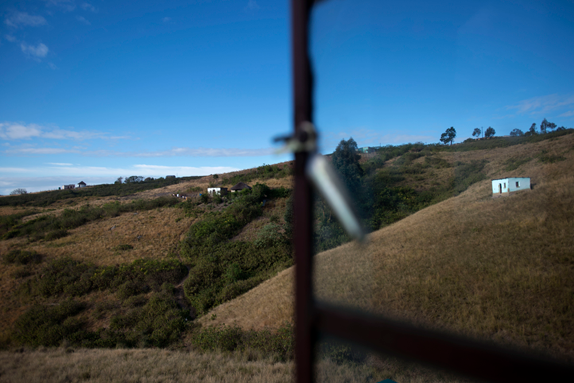
Each time we visit, the construction of a new rondavel appears closer to completion. Nocingile says she has been using the money from her husband’s provident fund to build it.
Phumzile used to send home R2000 a month for the household and Nocingile says she now relies on the child support grant of R290 for each of her two youngest children, Yolanda (13) and Sinikiziwe (8), to get through the month.
“We can only buy the bare minimum of groceries, not even winter clothes for the children, now,” she says.
According to Nocingile, her husband was a humorous and thoughtful man who would always call to check what his children needed before one of his biannual trips home: “He would bring those things for them: sweets, yoghurt, sometimes a soccer ball or a cellphone. I didn’t ask for anything.”
There are no jobs in the rural Eastern Cape, except for when a government project is launched. Nocingile hopes that she will be able to replace her husband at Lonmin, if the mining company ever makes the offer — most families have been told it will happen once the Farlam Commission has concluded its findings.
She would rather that her eldest son, Lindikhaya (27), continues his studies to be a mechanic at a further education and training college in nearby Libode.
“I’ve never liked the idea of working in the mines, especially when I went to Marikana to visit my husband and saw the conditions he lived and worked in,” says Nocingile. “But it was the only work he could get. And it is the only way we can make ends meet now that he is gone, so I would rather go instead of my son.”
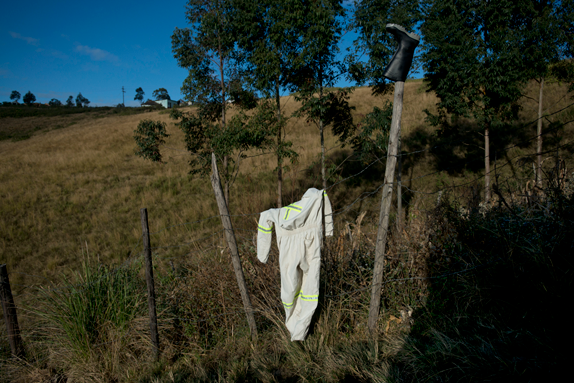
On a Friday morning, the air in Ndamazulu is still. Yet Phumzile’s work overalls flutter as they dry, hanging over the fence surrounding the maize field in which he is buried, as if awakened by the thumping bass from the kwaito music Lindikhaya is playing nearby. Despite the fast-paced soundtrack, time passes slowly here. As does grief.
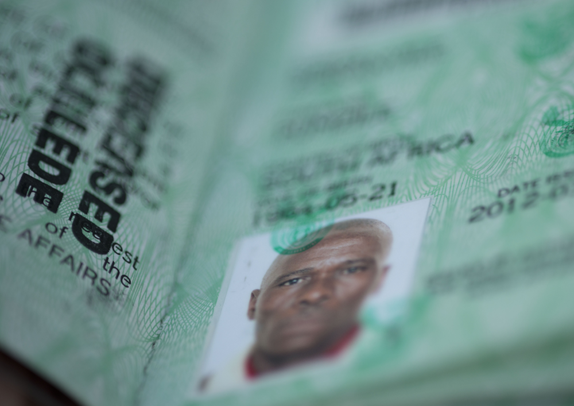
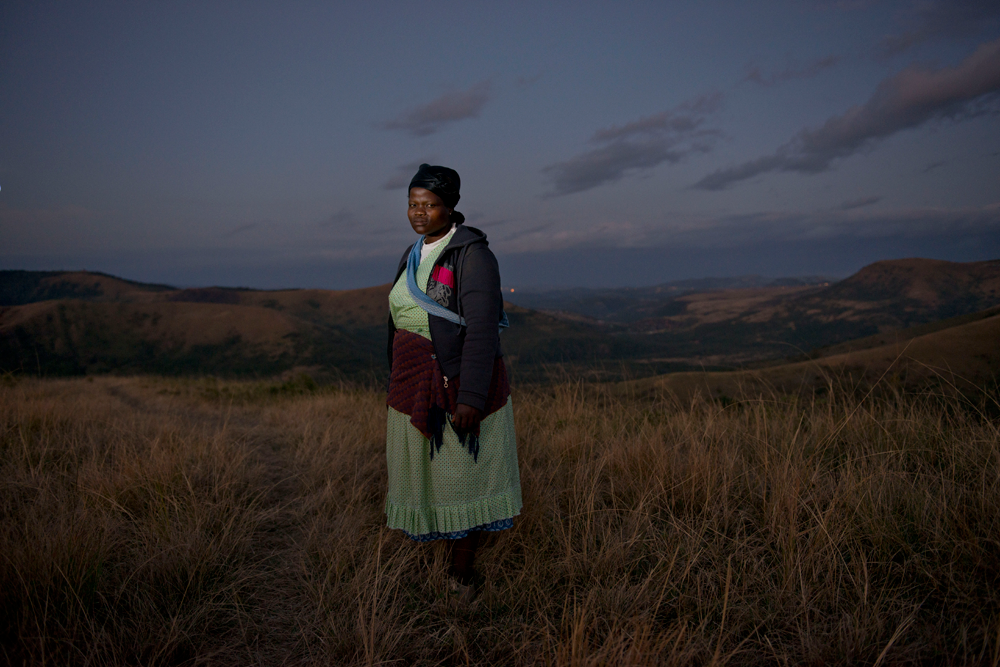
Leave a Reply
You must be logged in to post a comment.